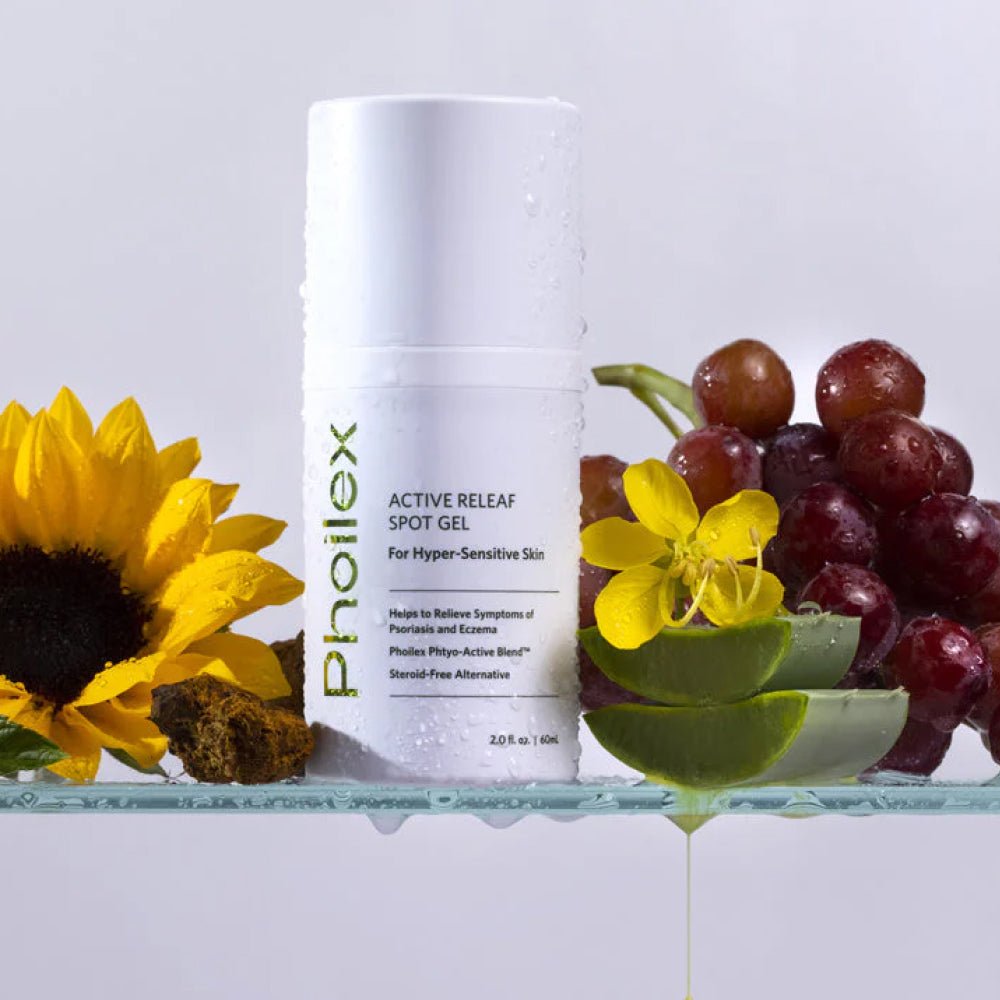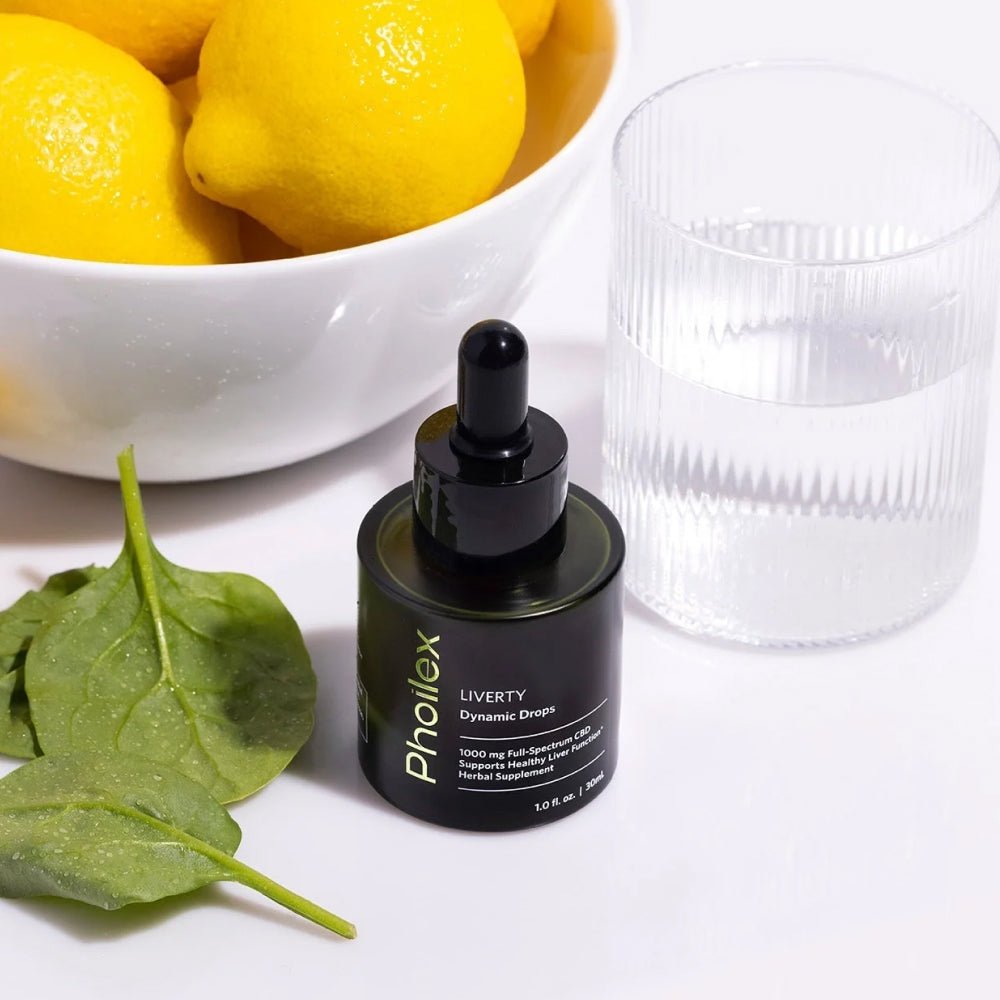Every cell in the human body requires nutrients such as vitamins, minerals, oxygen and glucose to perform its essential functions. Although some of these can be produced by the body itself, our cells also rely on the foods we eat for the energy they need. In the case of skin conditions such as eczema and psoriasis, diet can play a role in stretching asymptomatic periods and minimizing flare-ups. Conversely, an improper diet can contribute to flares in some as well.
Experts agree that there are five dietary essentials for optimal skin health.
- Hydration: Drinking an adequate amount of water and eating water-rich foods can help prevent skin dehydration, which may lead to dry, flaky skin.
- Antioxidants: Plentiful in brightly colored fruits and vegetables, antioxidants like vitamins C and E protect cells from free-radical damage that can affect skin conditions like eczema and psoriasis.
- Omega-3 fatty acids: Found in fatty fish like salmon, walnuts and flaxseeds, these fatty acids are a key component of the skin barrier.
- Protein: Lean meats, fish, dairy, legumes and nuts are good sources of protein, which helps build and repair skin tissue.
- Vitamins and minerals: Nutrients such vitamins A, D and K, as well as minerals like zinc and selenium, play important roles in wound healing and skin barrier function.
Diet as trigger for skin conditions
A healthy, balanced diet can support healthy skin, but skin conditions like eczema and psoriasis can be triggered by certain foods. Although every eczema case is different (and no single diet can manage this skin condition in everyone), some patients discover that avoiding specific foods helps keep their skin calmer. Among the most common foods that have been linked to eczema flare-ups are ultra-processed foods, dairy, gluten, white flour and nightshade vegetables (i.e. peppers, tomatoes, potatoes and eggplants). Patients with psoriasis are often advised to avoid red meat, processed meats, eggs, gluten, nightshades and alcohol due to the potential to promote inflammation and immune-system response.
The liver and skin health
When approaching skin health from the inside-out, diet is just the beginning. At Phoilex, we believe it can be beneficial to pay closer attention to the liver as well. The liver’s main responsibilities are detoxifying the body by filtering the blood, breaking down chemicals and processing nutrients. Among the toxins the liver is tasked with eliminating from the body are chemicals we come in contact with daily, medications, and byproducts from the environmental stressors we encounter day in and day out. It is believed that liver inflammation can impede its basic function and contribute to the inflammation associated with skin conditions like psoriasis.
The gut-skin connection
Microbiome research in recent years has revealed a relationship between the health of the gastrointestinal tract and the skin. Known as the “gut-skin connection,” this association may be especially important for those with skin conditions like eczema and psoriasis.
Studies have shown that the balance of microorganisms in the gut and the integrity of the gut lining can influence the skin.
- A bacterial imbalance in the gut can lead to inflammation throughout the body, including skin affected by eczema and psoriasis.
- The gut also acts as an immune system hub, and a compromised gut barrier can trigger immune responses that can potentially impact the skin.
- When gut issues impede the absorption of nutrients, resulting deficiencies may affect the skin.
- The gut microbiome can influence the production and balance of brain chemicals like serotonin, which has been linked to itching associated with eczema.
- There may be a connection between a compromised gut lining and a compromised skin barrier that makes the skin more vulnerable to sensitivity and irritants.
The same balanced diet that helps optimize skin health can ensure gut health—but you’ll want to add fiber, probiotics and prebiotics. Fiber helps feed gut microbes so they don’t turn to the gut lining as a source of food, probiotics (found in yogurt and fermented foods) support gut microbiome balance, and prebiotics feed “good” bacteria within the gut. Although more research is necessary to fully understand the intricacies of the gut-skin connection, there is sufficient evidence to show a link between gut and skin health (and eating these skin-friendly foods can’t hurt).
Phoilex takes an inside-out approach
Inspired by the role diet plays in skin health, Phoilex provides the skin with hydration, vitamins, minerals, antioxidants and other beneficial nutrients from the inside and out. Our steroid-free topical Active ReLeaf Gel instantly moisturizes and soothes dry, flaky skin upon application—and works to increase the time between flare-ups.
Taken internally, Liverty Dynamic Drops complement the Active ReLeaf Gel’s topical skin benefits by supporting the liver to address inflammation from within. Formulated with plant-based ingredients that have been shown to promote a healthy liver, this daily oral tincture is designed to optimize liver detoxification, which may have a meaningful impact on the skin.
Among the other ingredients in the Liverty Dynamic Drops are turmeric root extract for its powerful antioxidant and anti-inflammatory properties, MCT oil for its protective benefits, and milk thistle extract to reinforce liver-cell membranes.
Phoilex also acknowledges the impact the mind can have on the skin. That’s why the Liverty Dynamic Drops also feature broad-spectrum CBD to mitigate the effects stress may have on skin conditions like eczema and psoriasis.
Phoilex offers a clinically proven, plant-based, steroid-free way to restore the skin’s balance—as well as its comfort and appearance. Our topical products feature a proprietary Phyto-Active Blend™ of seven botanicals with powerful antioxidant and anti-inflammatory properties that have been clinically shown to provide hydrating, healing and soothing benefits when the skin is both calm and experiencing a flare.
Although every case of eczema and psoriasis is different, it’s important to consider the impact your diet and liver health can have on your skin condition. With a little trial and error, you may be able to identify your triggers (and avoid them to experience fewer flare-ups). When you take Phoilex Liverty Dynamic Drops as part of an inside-out approach to managing your skin condition, your internal efforts can yield visible external improvement.
Wherever you may be in your skin-condition journey, Phoilex can help you get the relief you’re looking for without unwanted side effects. Our products can be used on their own to restore and maintain calm skin, and they are also safe for use with other over the counter and prescription-based treatments. With Phoilex, the choice is clear.
Frequently Asked Questions
Q: How does poor nutrition directly affect skin health?
A: Poor nutrition can compromise the skin's barrier function and lead to various skin issues like dryness, inflammation, and delayed healing. The skin requires specific nutrients including vitamins, minerals, and proteins to maintain its structure and repair damage, while inadequate nutrition can result in visible signs of skin deterioration and increased sensitivity.
Q: Which foods should I avoid if I have eczema?
A: Common trigger foods for eczema include ultra-processed foods, dairy products, gluten, white flour, and nightshade vegetables like peppers and tomatoes. Each person may react differently to specific triggers, so it's important to track your diet and symptoms to identify personal food sensitivities that may cause flare-ups.
Q: What are the five essential dietary components for healthy skin?
A: The five key dietary components for optimal skin health are proper hydration, antioxidants from colorful fruits and vegetables, omega-3 fatty acids from sources like salmon and walnuts, protein from lean meats and legumes, and essential vitamins and minerals including A, D, K, zinc, and selenium. These nutrients work together to maintain skin barrier function, support healing, and protect against cellular damage.
Q: How does hydration affect skin condition?
A: Adequate hydration helps maintain skin elasticity and prevents dryness and flakiness. Proper water intake, combined with consuming water-rich foods, helps transport nutrients to skin cells and removes waste products, while dehydration can lead to compromised skin barrier function and increased sensitivity.
Q: What role do antioxidants play in skin health?
A: Antioxidants protect skin cells from free radical damage that can worsen conditions like eczema and psoriasis. Found primarily in brightly colored fruits and vegetables, antioxidants like vitamins C and E help maintain skin health by preventing cellular damage and supporting the skin's natural repair processes.
Q: Which foods should psoriasis patients avoid?
A: Psoriasis patients should generally avoid inflammatory foods including red meat, processed meats, eggs, gluten, nightshade vegetables, and alcohol. These foods can potentially trigger immune system responses and increase inflammation, leading to psoriasis flare-ups and worsening symptoms.
Read more

Before there were drugs for treating eczema and psoriasis there were botanicals. In fact, traditional medicine has turned to plants to treat a wide variety of skin ailments for thousands of years. ...

Topical steroids are often a first line of defense for treating the itching and inflammation associated with skin conditions like eczema and psoriasis. Patients like topical steroids because they w...
